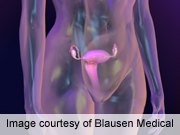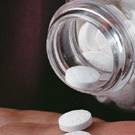CDC: Neural Tube Defects Declining in the United States
Still, not enough women are getting enough folic acid
Aerobic Exercise Reduces Fatigue With Radiotherapy for Breast CA
Findings in a quasi-experimental study of Taiwanese women with early-stage breast cancer
Working Long Hours? Beware Risky Alcohol Consumption
Researchers find link between long hours on the job and excess alcohol consumption
Antenatal Corticosteroid Use Up, Even When Not Optimal
From 1988 to 2012, increase in optimal, suboptimal, and questionably appropriate use
Obesity Up in Past Decade, but Diabetes Incidence Stable
Risk of new-onset diabetes higher in the 1990s and 2000s than in the 1970s
Metabolic Sx Tied to Higher Risk of Endometrial Cancer
Excess weight likely a big factor, but other conditions also appear to matter
Race, Ethnicity Impact Breast Cancer Prognosis
New research finds biological differences in tumor type, behavior
Many Women Receive Unnecessary Hysterectomies
Alternative treatments for benign indications, such as uterine fibroids, are often underused
Guidelines Presented for Clinical Documentation in 21st Century
Recommendations provided for clinicians, provider institutions, government regulators, payers
Over 10 Percent of Patients Taking Aspirin Inappropriately
For many users, odds of heart attack, stroke are lower than risk of serious bleeding



















